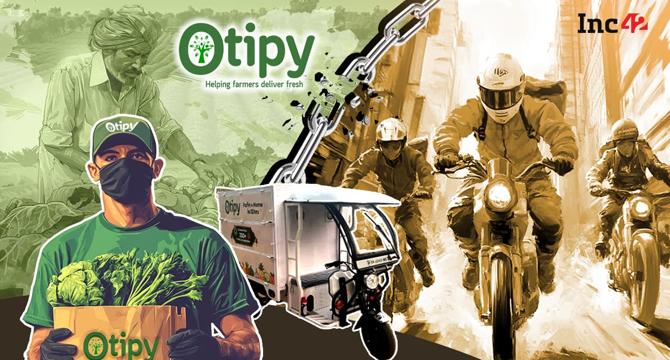Inc42
4w
395

Image Credit: Inc42
Otipy Raised Millions, But Couldn’t Beat The Quick Commerce Wave
- Otipy, an agritech startup in India, struggled to compete with the rise of quick commerce in the market despite raising significant funds and being an early mover in the farm-to-table space.
- The company, founded by Varun Khurana and Prashant Jain, aimed to connect consumers with farmers through a community of resellers for doorstep delivery of fresh produce.
- Otipy raised substantial funding, expanding its operations and joining the ONDC program to scale its consumer base beyond Delhi-NCR.
- Despite revenue growth, Otipy faced challenges in operational efficiency and financial sustainability due to the capital-intensive nature of last-mile delivery and perishable categories.
- The company's model began to show cracks as quick commerce services offering rapid deliveries started attracting consumers away from Otipy's value proposition of pre-planned fresh produce orders.
- Struggling to pivot to faster deliveries, Otipy faced logistic complexities, higher wastage risks, and a lack of resources to compete in the quick commerce market.
- Otipy failed to secure adequate funding and eventually shut down operations, reflecting the challenges faced by farm-to-table startups in adapting to changing consumer demands.
- The downfall of Otipy highlights the broader trend in the agritech sector where startups are reassessing their farm-to-fork models in light of the evolving market dynamics.
- Investors are cautious about the future of farm-to-fresh startups, suggesting a need for differentiated offerings and partnerships with retailers to succeed in the competitive landscape.
- Lessons from the closure of Otipy may prompt a rethinking of strategies for agritech startups to focus on quality, uniqueness, and indirect sales channels for sustainable growth.
- The fate of the farm-to-table segment post-Otipy's shutdown raises questions about the viability of the model and the need for innovative approaches to meet consumer demands.
Read Full Article
22 Likes
For uninterrupted reading, download the app